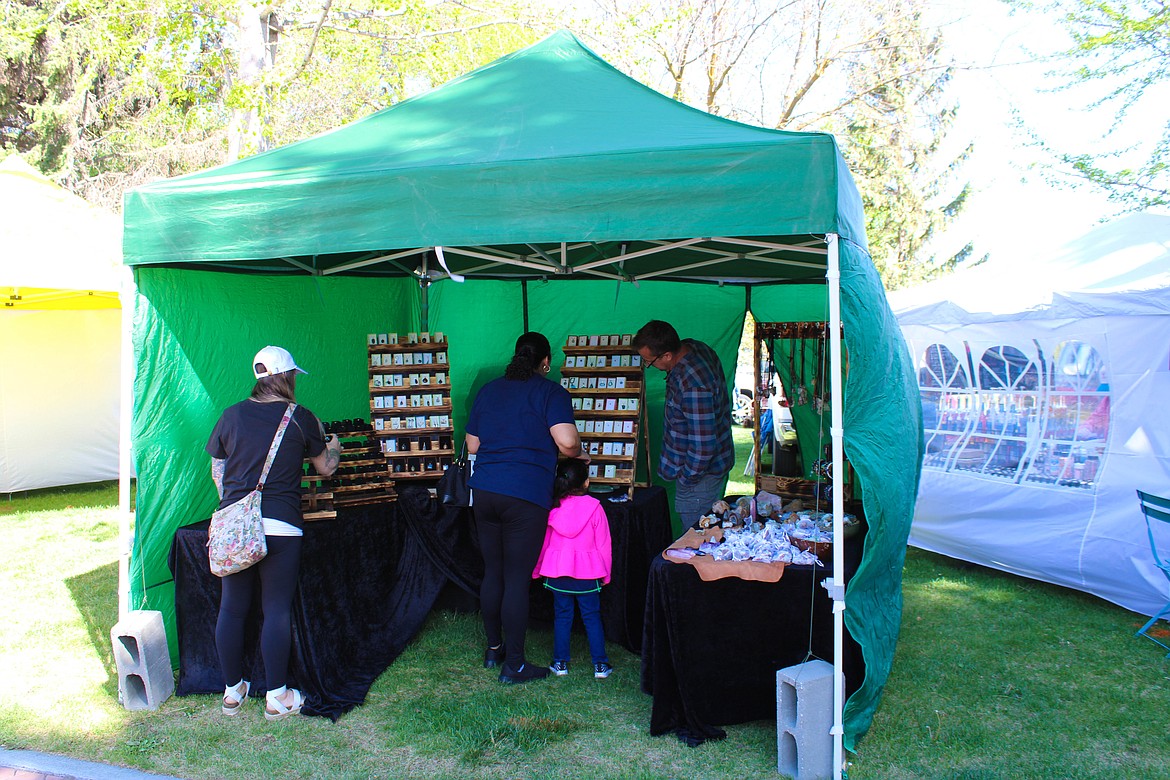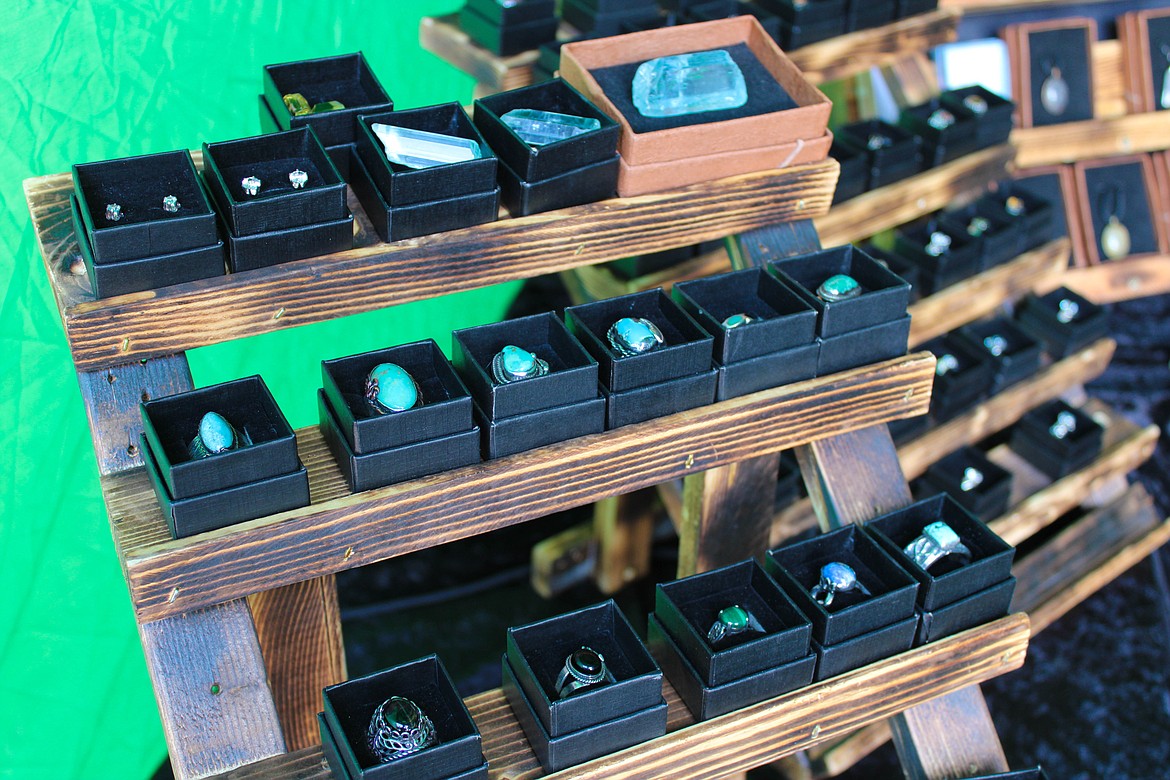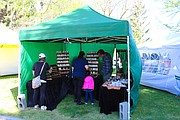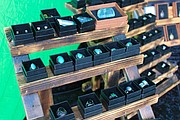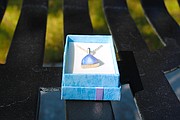Treasure's afoot: Mineral prospector displays bounty of local finds
Columbia Basin Herald | UPDATED 3 years, 10 months AGO
It started with gold mining, said David Waller of DnD Jewelry Shop in Ephrata. His table, on display at markets across eastern Washington, carries jewelry, gems, colorful rocks and even antler bits. Now, he’s a treasure hunter.
“If you would have told me 10 years ago I was going to try to do this for a living I would have said you’re crazy, but life’s that way,” he said.
Waller’s always itched to spend time outside, he said. A lifelong hiker and camper, he joined the army infantry.
He started mining for gold in 2009, he said, as a mail carrier. The TV show, “Gold Rush: Alaska,” premiering the following year, piqued his interest even more.
“Washington has more gold than Alaska and it always has,” Waller said. “We’re only second to Nevada.”
But sources differ on which state has the most gold.
Parker Schnabel, the main personality on “Gold Rush: Alaska,” learned his techniques from his family, who mined the Wenatchee River.
As he continued, Waller joined mining clubs and made friends, he said.
“Next thing you know you’re knee deep in it,” he said. “Neck deep for some people.”
The diversity among miners amazed him, he said. As a mail carrier, Waller dove for gold with a part-time dairy farmer, a 30-year pilot and an ex-Navy nuclear engineer. All vastly different backgrounds united by common interest.
Little by little, Waller’s passion grew. A devoted researcher, he hand-built all of his equipment for panning and dredging.
It’s part of the fun, he said, getting deep and learning the physics and mechanics.
When Waller would sift through the sluice box, he found the shimmer of not gold, but various rocks. One day, when he took them to a gem expert, the expert told him he found diamonds.
With a couple weeks of research, he returned to the same area and found a sapphire.
“Gold has marketable value and industrial value,” Waller said. “Jewelry, gemstones, are just because they’re pretty. Once we learned about that stuff we’re like, ‘Well, wait a minute, we’re digging out here all day for $100 worth of gold and we’re throwing away a thousand in precious stones and gems.”
With this realization, the world opened wide, he said. Now, he collects about anything that sells.
He starts by checking the area’s history, he said, doing research and digging in creeks and rivers across the state.
According to Forbes, the Ellensburg Blue agate, only found locally, is the third rarest stone on the planet. It’s currently worth $250 a karat.
Last year, Waller found a phone-sized hunk worth $5,000 in its rough form.
The Ellensburg Blues have a unique glow, Waller said, with peach and apricot colors coming through.
“You can put an Ellensburg chalcedony next to a Madagascar chalcedony blue, and the blue just glows. There’s something special about it,” he said.
While he’s of course looking for sale value, the coolest finds come from the story, he said.
In the ocean, rocks can get caught between two currents that form a perfectly round sphere over time. Waller’s found one of these too.
“There’s a monetary part of it, but there’s an adventure part,” he said. “The best part is the adventure.”
Politics around mining form the biggest obstacle, Waller said.
In June 2020, a state law came into effect banning motorized dredging in many areas to protect salmon, steelhead and bull trout protected under the Endangered Species Act, leaving Waller only able to pan and scour for minerals.
Anglers endanger fish more than miners do, Waller said. The dredges, which siphon water, do not harm the fish, he said.
“The rock counters and the miners, we’re the low hanging fruit,” he said. “We’re the easiest ones to pick on because we’re the fewest.”
Waller advises new miners to follow the rules as posted by the Fish & Wildlife Department, he said. Don’t trespass and don’t get in someone else’s way, as it ruins it for everyone.
Get kids involved and make it fun, he said.
To see Waller’s jewelry, find him at a local market or at dndjewelryshop on Etsy.
Sam Fletcher can be reached via email at sfletcher@columbiabasinherald.com.


